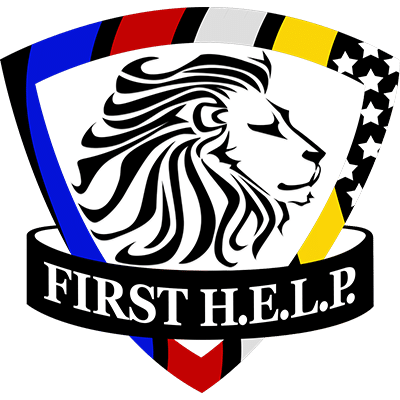Why Resilience?
What to Look for in a First Responder Resilience Training Program. Most often, resilience is defined as the ability to “bounce back” from adversity. I define resilience as the ability to leverage tools and resources to recover well and grow stronger from adversity. Being resilient means when you get knocked down, when you’re struggling, you do something about it so you don’t get stuck, and instead you recover well and become stronger because of what you faced and what you did to overcome it.
As first responders, the work is reactionary (you generally respond after something bad happens, and don’t necessarily know what you’ll face when you answer a call), the work never ends (you maintain 24/7 operations, and it can be hard to disconnect from the job when not at work). The stress and trauma you face every day adds up, becoming quite a heavy load you carry every day. First responders have a greater likelihood of suicide, PTSD, insomnia and substance abuse than the general population, and there’s a stigma against reaching out for support
All this means first responders experience more stress and adversity than the general population, there are barriers to getting the help that they need, and the nature of 24/7 reactionary operations makes it hard to plan out their days to boost resilience and wellness.
Resilience isn’t an innate quality. Everyone has a breaking point, and everyone can develop their skill sets in navigating stressful situations. Given the challenges of working in these fields, first responders need more support in building their ability to navigate and grow stronger from adversity than the general population because they generally see so much more adversity.
What should you look for?
When looking for a resilience training program for your agency, there are a lot of options out there, and many things to consider as you navigate these options. The first thing to point out is that resilience is a broad term, and it isn’t a protected field like nutrition, nursing, paramedics, or social work, etc. When something is a protected field, there are certain certifications or programs you can find and know that anyone with those credentials has a specific scope of practice. Resilience is a skill set, and can be taught by coaches, peer support, mental health providers, and more, and there are also different approaches (Yoga, Mindfulness, train-the-trainer, recovery stories) to building this skill set. This makes it tricky to know what to look for when choosing support. Here are some things to look for when selecting a resilience training program for your agency.
Culturally Informed Subject Matter Experts
First responders are unique; it takes a special type of person to choose a job that serves the community, faces high stress, long hours, shift work and danger. The challenges faced by first responders are also different from the challenges faced by other industries, and by the general population. Bringing in an expert that has only worked with affluent teenagers won’t have the context or credibility to teach first responders. The instructors don’t have to be first responders themselves, but they should have experience working with first responders or parallel populations. If they never served as a first responder, they should have experience (or a willingness to) shadowing first responders while they work.
Functional learning
Most people in active professions (first responders, military, etc.) didn’t join those professions to sit in the classroom and listen to lectures. It’s not their learning style. When learning new information, you need to immediately see why this is important and how to use it in your daily lives. Learning skills and tools that take an hour a day of practice isn’t functional. Learning conceptual information but not how to formally and informally apply it isn’t functional.
For example, when talking about sleep, talking about 8 hours a night and circadian rhythms is great, but long hours, shift work and high stress make sleep challenges prominent. Look for someone who will teach strategies to improve sleep quality, not just repeat the message “you need to get 8 hours a night.”
Distributed learning and a long-term implementation plan
People tend to enjoy attending half or full day seminars, as reflected on most training feedback forms. Seminars and workshops can be easier to schedule with shift workers. However, in the long term, large dose trainings like these aren’t always very impactful. People leave inspired, but with no plan of how to incorporate the new information into their lives, and only recall about 10% of the course material.
Distributed learning is important: learning over time, effortful recall, interleaving are important adult learning principles for actual learning and behavior change. What are the touch points over time? How is the information learned remaining relevant and useful? What are the check-ins on efficacy of training events long after they occurred. If people can’t remember information they learned two months ago, that tells you something about the impact of that training. More effective training programs will have refreshers or regular opportunities to apply learning over time.
Photo caption: Training programs for first responders should be functional, build on learning over time, and be delivered by subject matter experts that understand the culture of first responders.
Kaitlyn Daniel is the owner of Learning to Lead, a Tacoma, WA based company that helps leaders build resilient teams by helping them build cultures of engagement, adaptability and trust. She is a creative and dedicated team player with over half a decade of experience teaching small and large teams in the US Army in emotional resilience, leader development, performance and academic enhancement.

